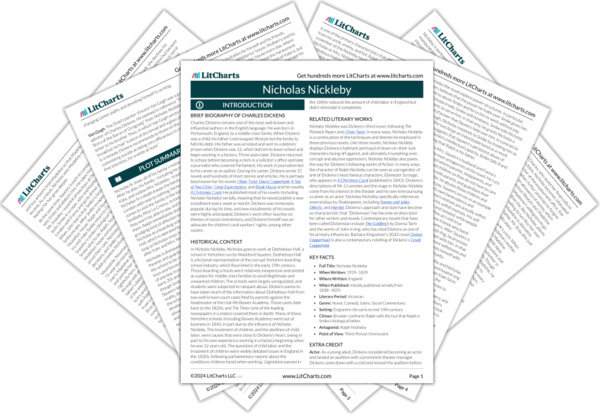The fact that Newman and Brooker band together to undermine Ralph again illustrates the fundamentally misguided nature of Ralph’s selfish approach to life. In this case, though Ralph has more money and power than Brooker and Newman, together, Brooker and Newman are able to take down Ralph. That fact highlights the novel’s argument that one person acting alone is no match for a community of people acting together. Again, Brooker and Newman are first brought together by a shared disdain for Ralph, who mistreated both of them and therefore turned them into enemies.
